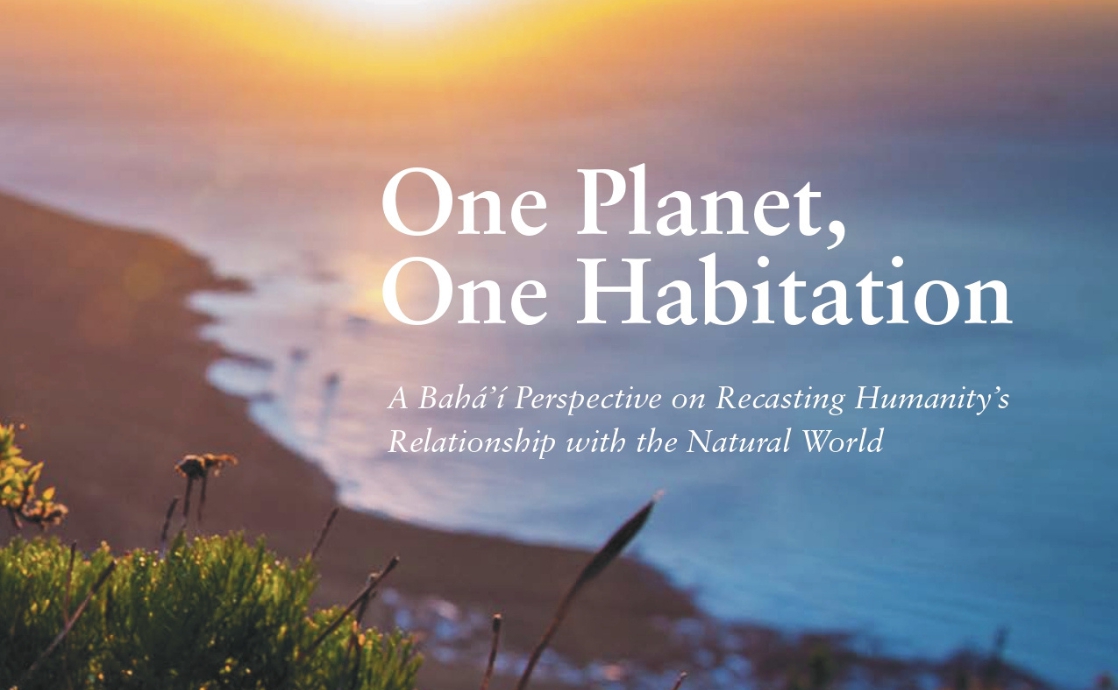The views expressed in our content reflect individual perspectives and do not represent the authoritative views of the Baha'i Faith.
The natural world, in all its wonder and majesty, offers profound insight into the essence of interdependence.
From the biosphere as a whole to the smallest microorganism, it demonstrates how dependent any one life-form is on numerous others — and how imbalances in one system reverberate across an interconnected whole.
Intimately embedded in this greater system, and deeply reliant upon it, humanity faces a paradox growing more consequential by the day. On the one hand, the human race has never held more power to shape the physical world on planetary scales — a development some have termed the anthropocene. This is a testament to our collective ingenuity and creativity, as well as the boundless potential before us. On the other, that very power, when untempered by thoughtful consideration and directed by priorities heedless of the present and future common good, gives rise to consequences not only worldwide in scope but potentially irreversible.
As the grave effects of surpassing planetary limits become increasingly apparent, from climate change to biodiversity loss to environmental degradation and pollution, humanity is being compelled to develop more mature, collaborative, and constructive relationships between its peoples and with the natural environment.
Thinking on environmental issues has progressed markedly since the landmark United Nations Conference on the Human Environment held in 1972. The advances achieved over the past half-century, whether scientific, legal, or institutional, stand as a reason for confidence and a source of hope for the future. Yet, today, increases in understanding must be translated into action far more rapidly and on much wider scales. Sweeping changes in the organization and operation of human affairs have become an existential imperative, necessary and unavoidable. The question before the nations and leaders of the world is whether the needed action will be taken as a matter of conscious choice and prevention, or whether it will be prompted by the destruction and suffering wrought by escalating environmental breakdown.
This span of earth is but one homeland and one habitation. It behooveth you to abandon vainglory which causeth alienation and to set your hearts on whatever will ensure harmony. – Tablets of Bahá’u’lláh.
RELATED: Only Human Unity, on a Spiritual Level, Can Assure Our Survival
One People in One Global Homeland
From a perspective wide enough to encompass the planet in its entirety, humanity can be seen in no other light than as one people living in one global homeland.
Consciousness of this oneness, expressed through relationships of justice, constitutes the only foundation on which sustainable societies can be raised. Every people, in its own way, celebrates the ever-abundant beauty and grandeur of nature. The traditions of every culture pay homage to that priceless heritage that sustains not only the physical needs of bodies but also the transcendent qualities of the spirit. The task of building a sustainable and flourishing world holds the promise of providing a point of unity not only in shared endeavor, but in joyful celebration as well.
To acknowledge humanity’s oneness is not to suppress variations of expression, culture, or social organization. The principle of unity contains within it the essential concept of diversity; indeed, this is what distinguishes it from uniformity. In the natural world, systems flourish through the interaction of highly diversified elements. Differences between various components can enhance the functioning of the whole and strengthen the resilience of the overall system. The task of building a sustainable and flourishing world holds the promise of providing a point of unity not only in shared endeavor, but in joyful celebration as well.
Proposals for Exploration
Pressing environmental realities demand of humanity an increasingly mature integration of principle and action, informed by a process-oriented approach to progress. Productive steps should be taken as quickly as possible within current systems, limitations notwithstanding, even as foundations that reflect new paradigms better able to meet contemporary needs are put into place.
Toward this end, proposals are offered throughout this document [serialized here at BahaiTeachings.org in four sequential articles] in a spirit of inquiry, drawing inspiration from instances where the international community not only imagined a better world, but attempted action along paths previously untraveled. Such practical experiences offer insight into what becomes possible when consensus and requisite action are allowed to transcend prevailing narratives that impede movement toward meaningful change.
One means of reinforcing the principle of the oneness of humanity that could be considered is establishing mechanisms that would evaluate the global impacts of domestic policies. An agreed-upon international advisory body, for example, could assess such impacts across national borders and recommend adjustments or restitution as necessary.
Within current structures, strengthening the legal framework related to the natural world would lend coherence to the biodiversity, climate, and environmental regimes, and provide stronger foundations for common stewardship of the planet. Integrating governance structures in this way is well within the capacity of the international community, and past experiences — advances and setbacks alike — provide valuable foundations which can be drawn upon. Efforts to increase coherence between engagement in areas of peacekeeping, mediation, human rights, reconstruction, and long-term development, for example — from the establishment of the United Nations’ Peacebuilding Architecture to the proposed new agenda for peace — hold initial lessons about what a process of harmonization of related efforts could look like.
















Comments
Sign in or create an account
Continue with Googleor